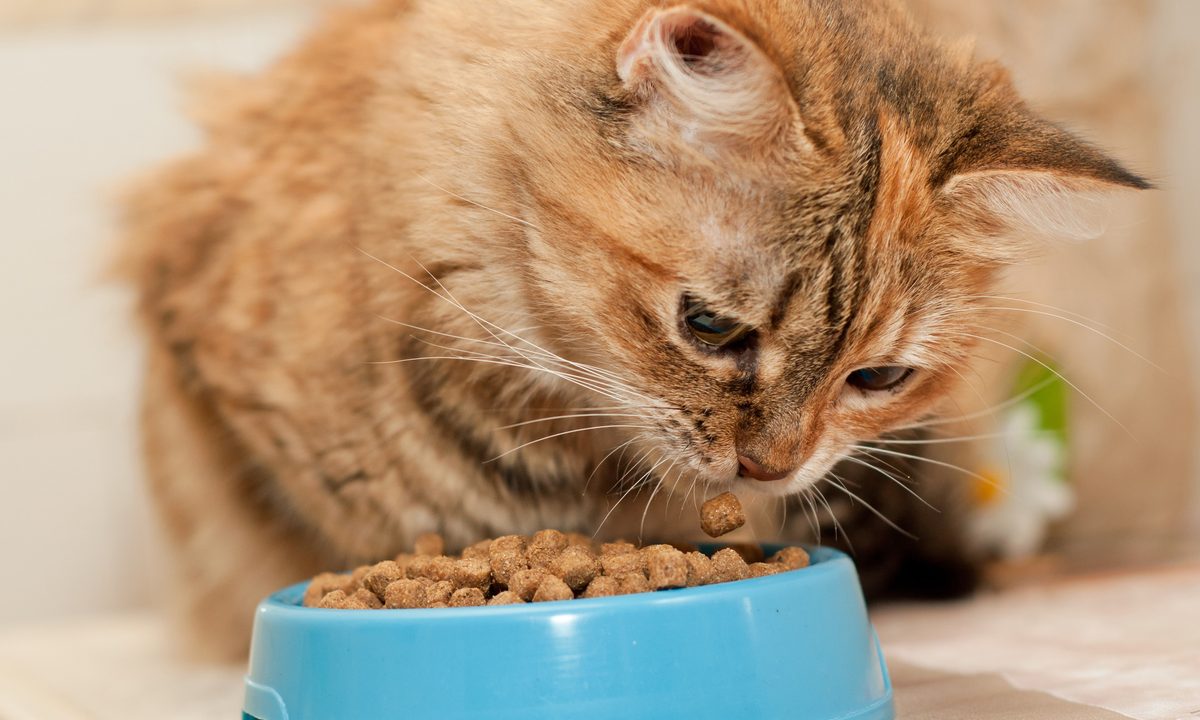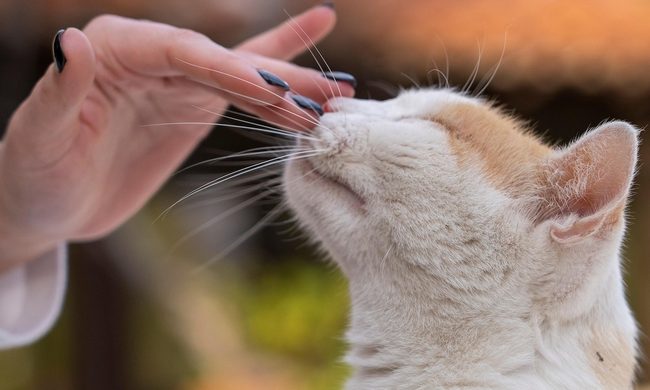While we may fight like cats and dogs with people we dislike, many actual cats and dogs coexist happily under the same roof. Though they might be able to share a home, dogs and cats can’t share much else, even if they want to. They require different toys, care, and, most importantly, food. Canines and felines have very different dietary needs, but can cats eat dog food? Read on to learn more about why cats and dogs can’t eat the same food.
Can cats eat dog food?

This question often comes up in households with both cats and dogs. Looking at the nutrition labels on your dog’s and cat’s foods, you may see some of the same ingredients listed and begin to wonder how similar their foods actually are.
So, can your cat and dog eat the same food? While a small amount of dog food will not harm your cat, continually feeding it to them can be harmful to their health. It is not toxic to kitties, but pup food ingredients do not provide the nutrition they need. Cat and dog foods are formulated differently to suit the dietary needs of the different species. If your cat eats dog food long term, their health will suffer.
Different dietary needs
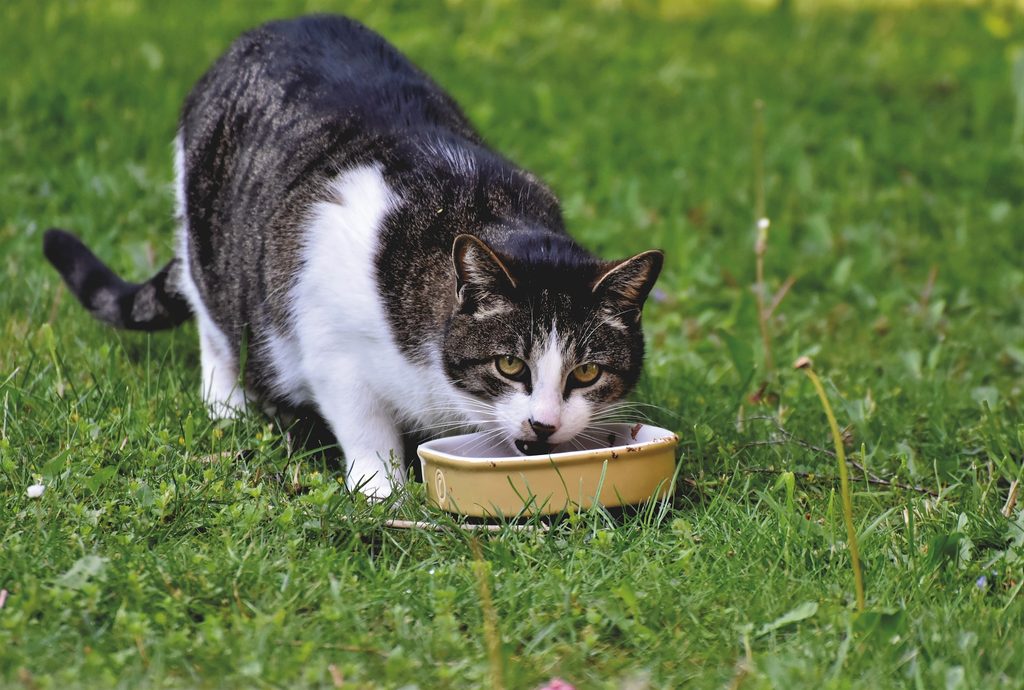
Since cats and dogs are different species, they evolved to have different nutritional needs. Cats are obligate carnivores. This means they require a diet of animal fats and meat-based proteins for their bodies to remain healthy and fully functional. Dogs, on the other hand, are omnivores. They have a more flexible diet and can eat meat and vegetables. A mouser, however, could not survive on a dog’s diet.
The difference between cat and dog food
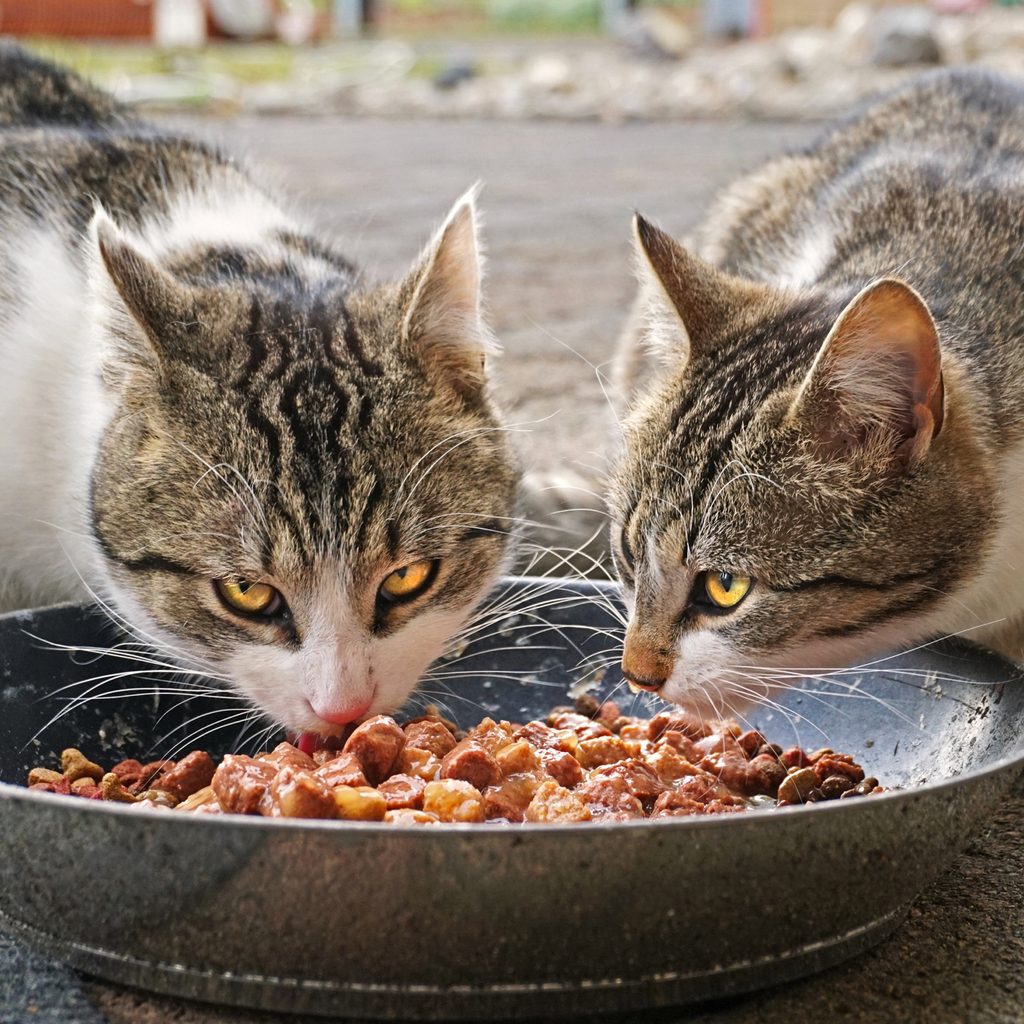
The following are just a few of the ways that dog and cat food formulas differ.
Protein
Because they are strict carnivores, cats need to eat food with more protein than dogs do. Typically, dog food has an “As-Fed” protein percentage of 18-26%. Cat food should have an “As-Fed” protein percentage of at least 30-34% for dry food and 40-50% for wet food. While some dog food brands offer high-protein formulas, they still do not provide the level of protein needed for cats.
Taurine
Cats are some of the only mammals whose bodies cannot make enough taurine naturally. As such, cats must eat food with added taurine, which dog food does not have. If they don’t get enough taurine in their diets, cats can experience digestive issues, loss of vision, and heart problems.
Niacin
Cats can also not make niacin, which they need in their diets. Animal tissue is the most common source of niacin. Plants also contain low levels of this vitamin. But a food made with more plant tissue and less animal tissue would still not be enough to meet cats’ needs.
Vitamin A
Both cat and dog foods generally contain vitamin A supplements. However, cats require more of it than dogs since their bodies cannot create it independently. Dog food does not hold enough vitamin A to suit the needs of kitty nutrition. Without enough vitamin A, cats can suffer from weakened muscles, dull coats, and potential night blindness.
Arachidonic acid
This fatty acid is another essential for cats that their bodies can’t synthesize naturally. Dogs create arachidonic acid on their own, so their foods usually do not have it added. If a cat does not get enough of this fatty acid in their diet, they may face liver and kidney problems, as well as skin issues.
Taste
Cats even experience taste differently than dogs do. They cannot sense sweetness and have much fewer taste buds than dogs; cats have 470 taste buds, whereas dogs have 1,700. This may be why your cat seems to be such a picky eater. Because of their lack of taste buds, manufacturers formulate cat food to be very tasty to entice them to eat. In fact, cats generally find most dog foods unpalatable.
What can happen if my dog eats cat food?
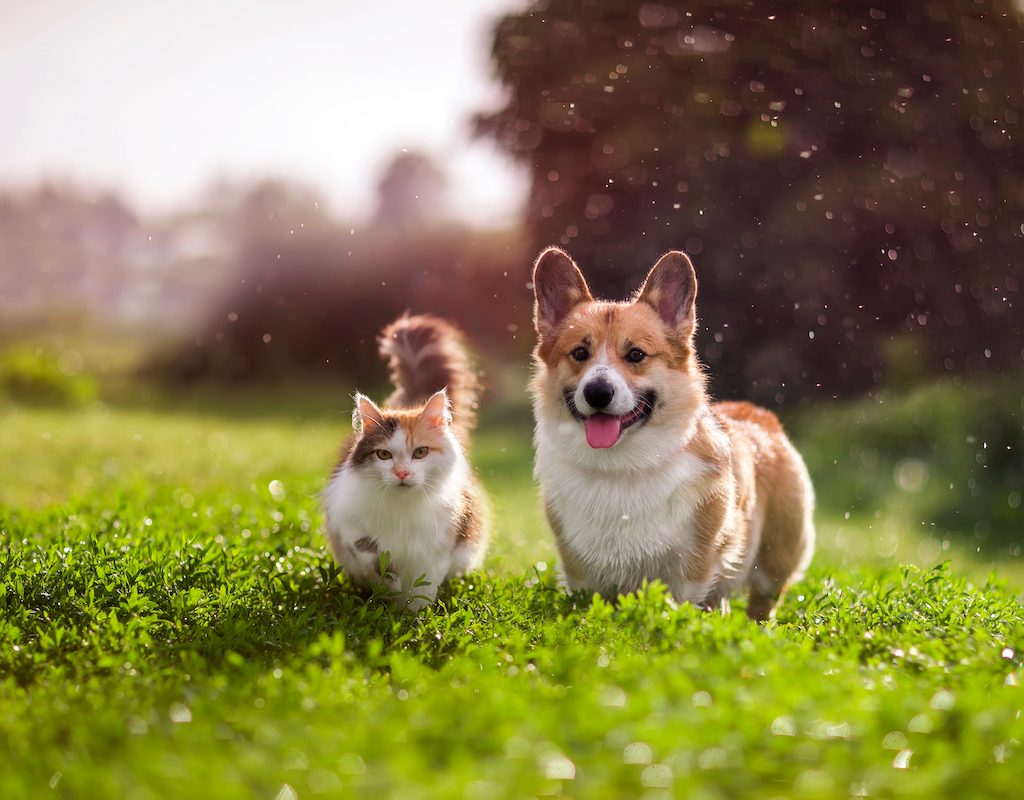
OK, we’ve covered pretty thoroughly why you shouldn’t let your cat steal from your pup’s bowl, but what about the other way around? As just discussed, your hound probably loves scraps and anything that they deem tasty — they’re a natural scavenger. Still, that doesn’t mean they should eat the cat’s food (and kitty likely agrees on this).
In addition to not providing exactly the right nutrients, cat food is very rich in all the extra fat and protein. It can cause stomach problems such as diarrhea and vomiting. Very rarely, your dog might get pancreatitis or develop obesity if they eat cat food over time. Our recommendation? Feed the pets separately or put the cat bowl out of reach where your dog can’t get into it.
Feeding dog food to your cat is a bad idea. While it may not be toxic to them in small amounts, it does not provide the nutrition they need to survive. To ensure your cat remains healthy and lives a long, happy life, feed them high-quality food designed specifically for feline needs.
Want more info about your pet’s food needs? Before you share that tasty little snack with your buddy, be informed and see our list of safe people food for cats.

